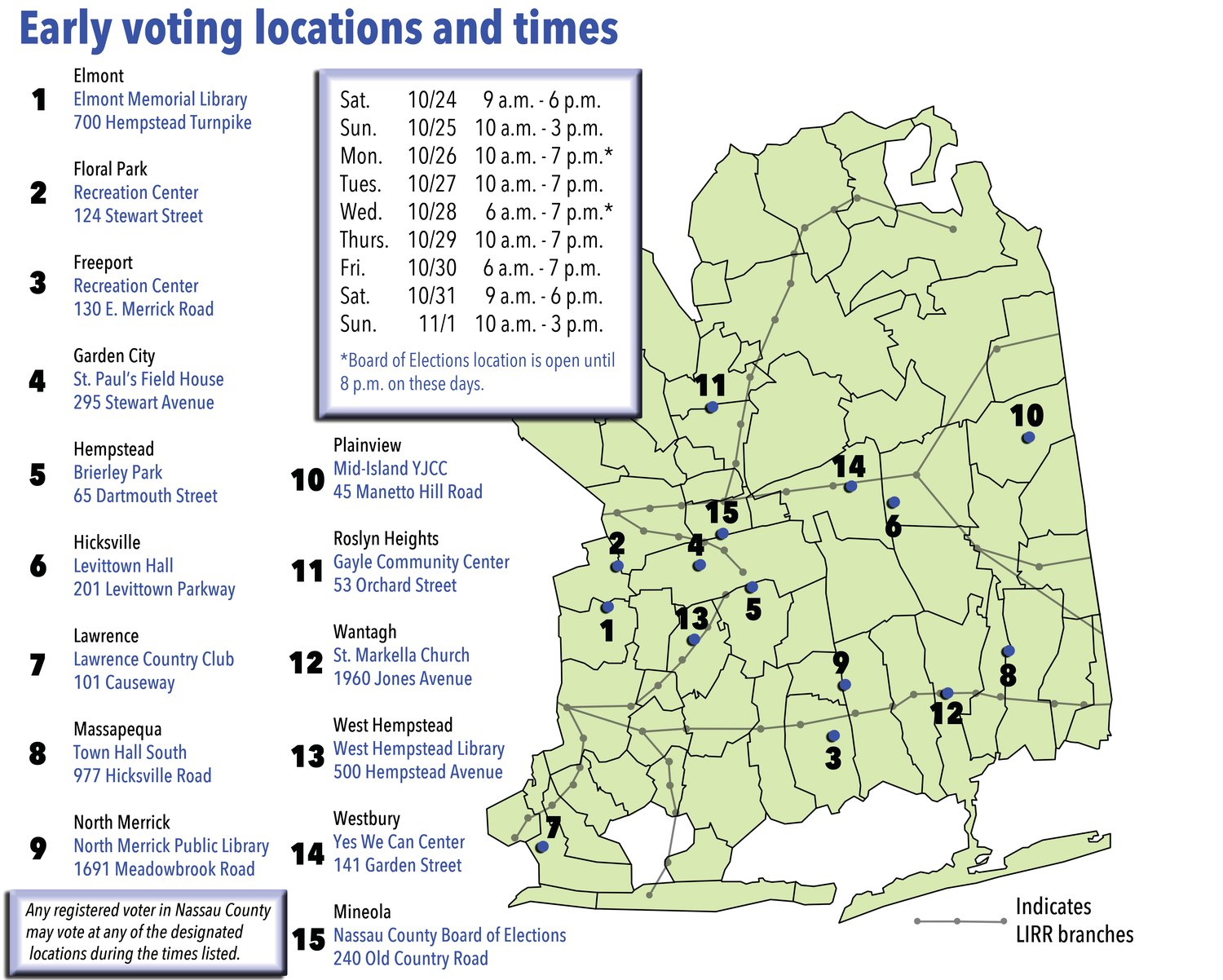Tuesday, April 23, 2024
A Merokean turning 100 offers some advice: get out and vote
2020 is the 100th anniversary of a constitutional amendment that changed the course of American history.
Because of the efforts of suffragists like Elizabeth Cady Stanton and Lucretia Mott, who organized the first women’s rights convention in upstate Seneca Falls in 1848, a national movement for women’s equality, including the right to vote, began to gain traction.
New York passed a referendum granting women that right on Nov. 6, 1917. Three years later, on Aug. 18, 1920, women across the country were given the same privilege with the ratification of the 19th Amendment.
Two months later, on Oct. 14, Lucille Munson, of Merrick, was born.
A member of the first graduating class at Mepham High School in North Bellmore, Munson, 99, has voted in her fair share of elections since casting her first ballot in 1941, when the voting age was still 21. That year she gave birth to her first son, Ronald, named for Ronald Reagan, who at that point was known only for his career in Hollywood.
Munson’s maternal grandfather, Joseph McCoy, was an active member of the Merrick Democratic Party in the 1930s. The call to civic service was seemingly passed down, as Munson spent a few years working at the Nassau County Board of Elections as a petitioner, going door to door throughout the neighborhood to collect signatures for upcoming races.
“I felt it was necessary,” she said of the job. “We are privileged . . . to vote, and we should vote.”
Before Levy-Lakeside Elementary School, her designated polling place, was built, Munson voted at the Merrick School, which later became Chatterton Elementary School. For most of her life, she voted on gear-and-lever machines affixed with retractable curtains. Today, Nassau residents verify their voter registration on iPads, or electronic poll books, and retrieve their ballots from on-demand printers. Once completed, they feed the ballots into a digital reader to cast their vote.
“The new way,” Munson said, “that’s for the birds.”
100 years of women’s suffrage
According to Antonia Petrash, founder of the Long Island Woman Suffrage Association, voting technology isn’t the only thing that’s evolved in the past century.
“In the first years [after women gained the right to vote], not too many of them voted,” she said. “At that point in time, polling places were in bars, barber shops — things that only catered to men — so [women] were reluctant to vote.”
Petrash explained that as polling places moved into schools and libraries, women started going to the polls in higher numbers to vote. She also noted that in terms of voter turnout, women outpace men by 55 percent.
“One of the tenets of the women’s suffrage movement was to encourage women to become politically educated, and it’s just as important today,” she said. “If everyone would get involved and vote for the people who would have the best impact in their lives, we could overcome some of [the] divisiveness.”
Get out the vote
Starting Oct. 24, Nassau County residents can head to one of 15 polling sites to cast their votes for the Nov. 3 election during a nine-day early-voting period. The process was introduced in New York state last year as part of a series of reforms intended to make voting easier for people who struggle to get to the polls on Election Day.
The nine-day schedule offers 81 hours of early voting — 60 are required — including evenings and weekends (see map). Residents can vote at any of the sites from Oct. 24 to Nov. 1, but if they choose not to, they must vote at their regular polling place on Nov. 3.
Munson, who will be the same age as women’s suffrage when Election Day rolls around, said she would make it a point to vote in person this year, despite the pandemic. “I don’t want to send it in [by mail] now that I hear [about] what goes on,” she said, adding, “I think [everyone] should go vote, because it’s to your benefit.”
Claudia Borecky, president of the South Shore Women’s Alliance, reminded voters, specifically women, not to be complacent when it comes to this year’s election.
“In a year that celebrates the 100th anniversary of women’s right to vote, women’s rights are at risk,” she said. “With a 6-3 Supreme Court threatening to end [Supreme Court Justice Ruth Bader Ginsburg’s] legacy, women’s voices need to be as strong as . . . the suffragists of 100 years ago. We cannot allow their struggles that gave women the freedoms they now enjoy to be in vain.
“Now is not a time for women to remain silent,” Borecky continued. “Let your voice be heard —vote!”
Jennifer Corr contributed to this story.
HELP SUPPORT LOCAL JOURNALISM
The worldwide pandemic has threatened many of the businesses you rely on every day, but don’t let it take away your source for local news. Now more than ever, we need your help to ensure nothing but the best in hyperlocal community journalism comes straight to you. Consider supporting the Herald with a small donation. It can be a one-time, or a monthly contribution, to help ensure we’re here through this crisis. To donate or for more information, click here.
Sponsored content
Other items that may interest you







